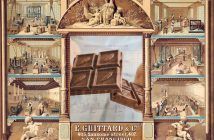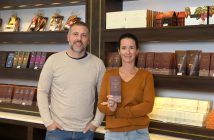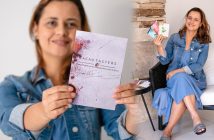Claudio Corallo is a legend in the world of Bean to Bar chocolates and specialty coffees.
Appointed as the creator of the best chocolate in the world, he is Florentine by birth, and known as the king of the African rainforest due to his work planting coffee in Zaire and cocoa in Sao Tome and Principe for more than 30 years, in a sustainable way. As a victim of malaria three times, he has never been able to get away from nature for a long time, until now. Trapped in his hometown of Florence, Italy, since the beginning of the pandemic, Claudio chatted casually with Grão Especial about Bean to Bar chocolates, Libérica specialty coffees, biodiversity and much more. Check it out.

Credits: Claudio Corallo coffees and chocolate
After countless contact attempts, we finally received a feedback from Claudio Corallo. Our conversation lasted five minutes, via whatsapp. When we were able to speak, he was comfortably seated on the balcony of a friend’s hotel on the outskirts of Florence, where he has been since the end of February, due to the pandemic.
Savoring an authentic Cuban cigar, he said that he managed to stay in exchange for promoting afternoons in which guests could taste his chocolates. And that he was sad because this year he was unable to harvest his coffee and that, probably, much of his cocoa will also remain planted. “I will have less damage with cocoa, certainly, since harvest starts in late May and in the early June, ending not before December. Fortunately, they are all well and the covid-19 did not affect the health of the population of Sao Tome and Principe. But it surely affected life. So much so that the country’s airport is closed and my products cannot be exported and are sold out at www.claudiocorallo.com. And there is not expected return date receipt.
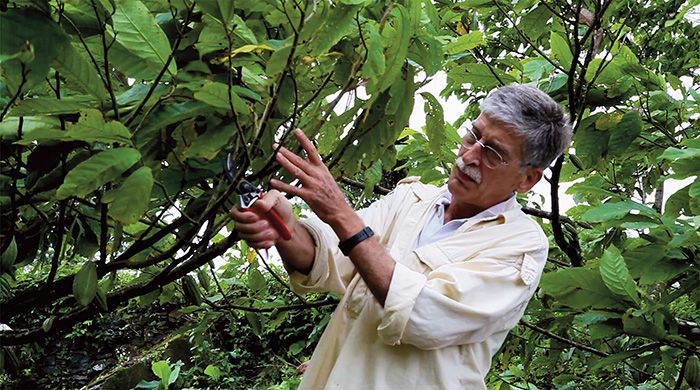
Credits: Claudio Corallo coffees and chocolate
Claudio Corallo has always been passionate about tropical forests. So much so that one of his favorite characters was Tarzan, starring actor Johnny Westmiller. But before venturing into the depths of the forest, he went to study tropical agronomy at the Ultramarine Agronomy Institute in Florence, certain that he did not want to live in Italy. Africa has always been his goal.
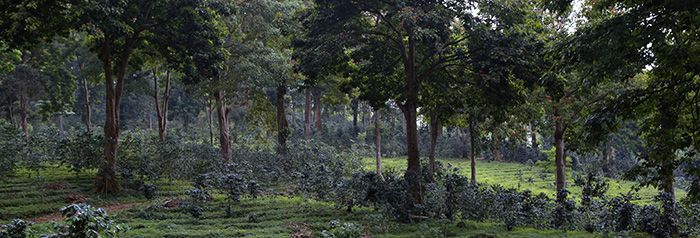
Credits: Claudio Corallo coffees and chocolate
At the age of 23, he embraced an opportunity to go to work as a coffee broker in Zaire (now the Democratic Republic of the Congo) in 1979 and, after three years, decided to buy his first land in the northeast of the country to grow Robusta coffee at an altitude between 850 to 1000 meters and which, in a short time, was considered the most expensive one in the international market, reaching 800 tons per year.
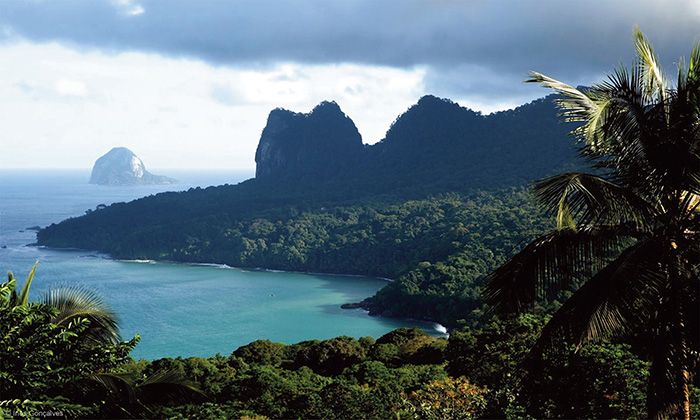
Credits: Claudio Corallo coffees and chocolate
It turns out that the country lived under the dictatorship of Mobutu Sese Seko, notorious for his leopard skin hat and cane, in addition to being one of the most powerful and authoritarian rulers in the continent.
The situation became unsustainable and, in 1990, he moved with his family to Sao Tome and Principe, where he acquired a 120-hectare cocoa farm named Terreiro Velho, formed in 1898 and which was nationalized after the country became independent from Portugal, in 1975.
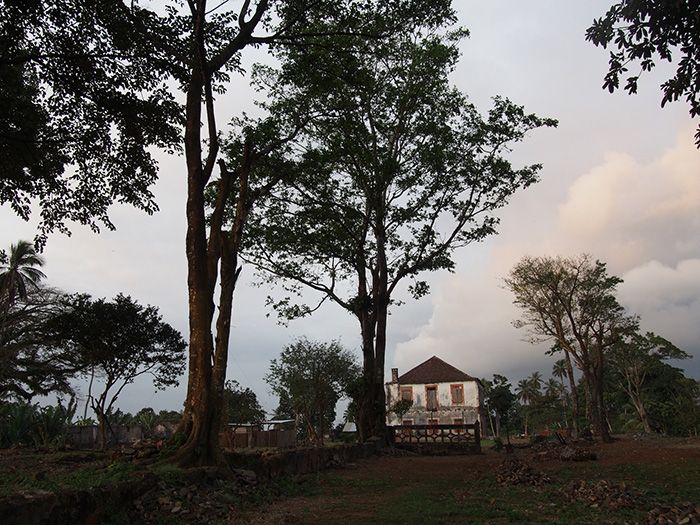
The Terreiro Velho farm is located on the Principe island, at the top of a plateau, overlooking the sea of Santa Barbara bay. Cocoa is planted on the slopes of the hill, down to the beach. In this property, he also plants Libérica coffee (whose fruits are thick and hard and have to be peeled by hand, one by one) and pepper. Credits: Claudio Corallo coffees and chocolate
“Although I never liked chocolate, I was fascinated by cocoa and its fruits”, says Corallo. The islands are volcanic and their location close to Ecuador, make the region ideal for growing cocoa.
Brazilian cocoa on African soil
Corallo discovered that the cocoa trees in his lands were originally from Brazil, from Bahia, with an amelonated foreign origin. Until 1800, cocoa was only grown in Latin America. Dom João VI, in 1820, predicting that he would lose his main colony soon, determined that a “more submissive” colony, in the words of the king himself, was taken to Sao Tome and Principe, to be grown there. The favorable soil and climate did the rest.
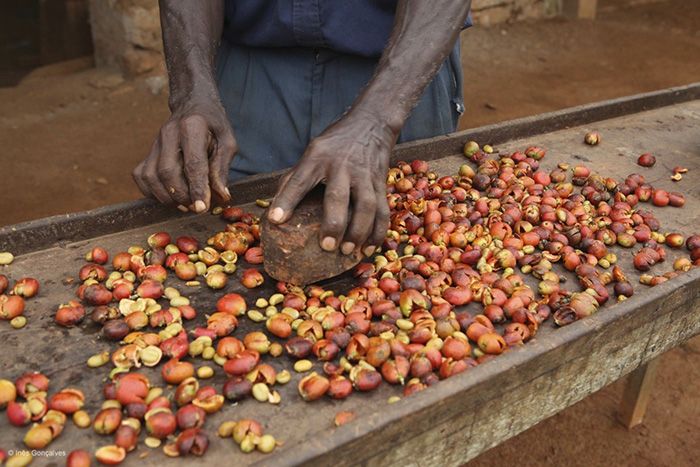
Credits: Claudio Corallo coffees and chocolate
The amelonated foreign cocoa is not very productive and, for this reason, many farmers in Bahia preferred to replace the species with hybrids, which, later in history, proved to be one of the causes of the witches’ broom disease that decimated our plantations of cocoa.
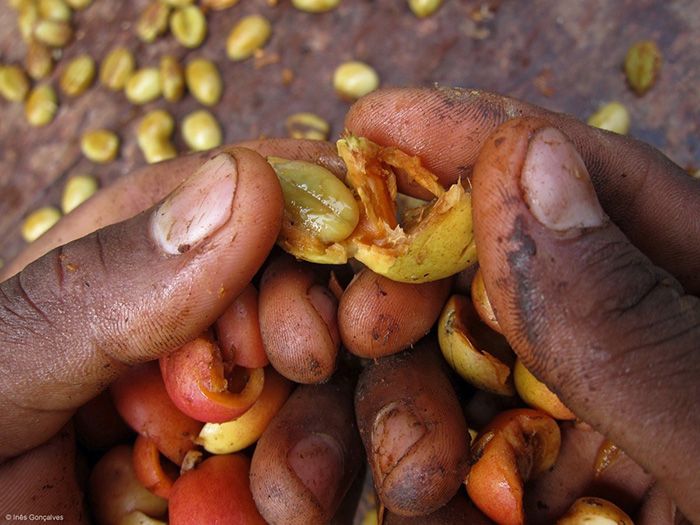
Credits: Claudio Corallo coffees and chocolate
Corallo, as a lover of nature and with a profound knowledge of the soil, adopted unconventional practices at the time that that prioritized the diversity and care for sustainability. Its cocoa plantation is organic, without adding up pesticides, being high quality, having exceptional aromas and textures and being permeated by the Atlantic forest.
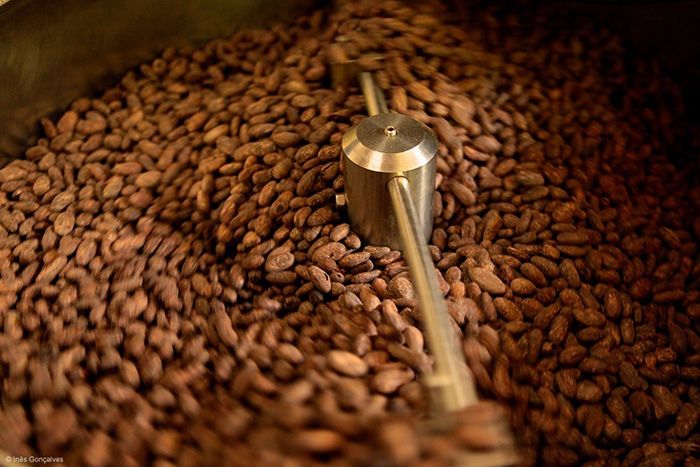
“A living product cannot rise in a dead land”, states Claudio Corallo. Credits: Claudio Corallo coffees and chocolate
At first, his only concern was with the cocoa plantation and how to make it increasingly capable of producing the best cocoa possible. However, he began to be disappointed when he realized that chocolate-makers were unable to produce a chocolate with the same quality as his fruit. He decided to investigate and set up a laboratory on the property, making the machinery himself and starting to produce his own chocolate.
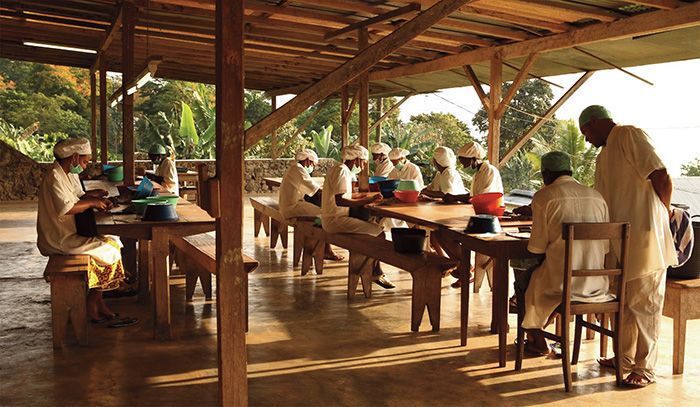
Credits: Claudio Corallo coffees and chocolate
Whether due to fate or luck, his first buyer was none other than the famous English store, Fortnun & Mason, (www.fortnumandmason.com), opened in 1707, in Picadilly, with four floors packed with the most sophisticated food, drinks and gifts. Hence the reason why he achieved fame for producing the best chocolate in the world.

Credits: Claudio Corallo coffees and chocolate
“By providing cocoa plants with the sea breeze and the right amount of sunlight, the cocoa tree gains strength and produces healthily and abundantly throughout the year. The quality of our work begins with care in planting, just as the quality of wine begins in the vineyard. From pruning cocoa trees to grinding roasted beans, each step has to be taken carefuly, with passion and love,” Claudio defines.
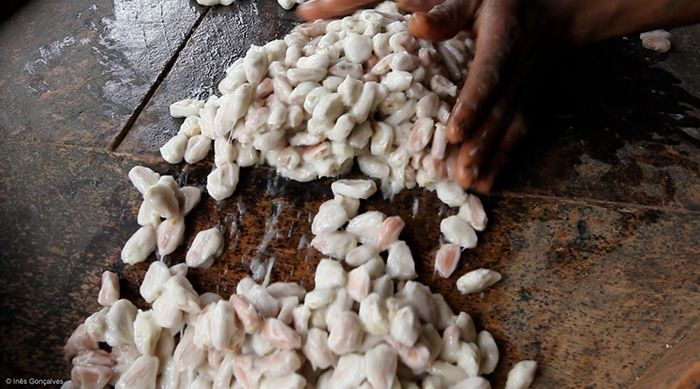
Credits: Claudio Corallo coffees and chocolate
Once dried, the cocoa is transported in small bags of 30 kg, in small boats, that cross the 90 miles that separate the island of Principe from Sao Tome.
Currently, Claudio also manages another property, on the island of Sao Tome, namely Nova Moca, located on the highest mountain on the island, where he produces specialty Caturra, Bourbon and Mundo Novo coffees, on terraces protected by stone walls. All production is entirely manual, including harvesting. “My coffees are harvested by hand and processed by means of natural methods, all developed by me, over these 35 years dealing with coffee”, he says enthusiastically.
The chocolate plant is also located on this property and employs 250 people in all.
His bars
As a purist, Claudio Corallo is not worried about diversifying his bars. “I produce only four variations: 80% cocoa, pure chocolate with sugar crystals; 73.5% cocoa, with sugar ground with chocolate, with the addition of roasted cocoa bean nibs; 75% cocoa without any other additions and 70% cocoa with Libérica coffee.

Credits: Claudio Corallo coffees and chocolate
He owns a line referred to as Chocolate & …, where customers may choose between chocolate with candied ginger, chocolate with candied orange or chocolate with pepper and salt from the Algarve.
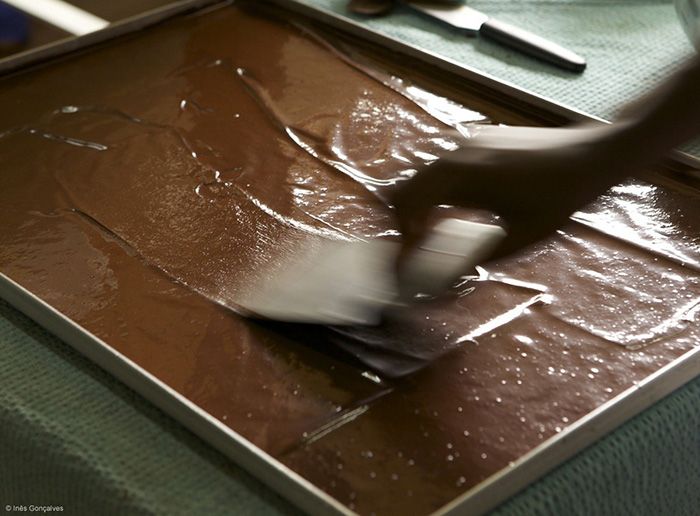
Credits: Claudio Corallo coffees and chocolate
And, joining his two passions, cocoa and coffee, he created the Chocolate and coffee line. There are three different varieties of Arabica coffee, Caturra, Mundo Novo and Bourbon, covered in 55% cocoa chocolate, presented in a 75-gram box. If you prefer, you can choose 70% cocoa bars with Libérica coffee.
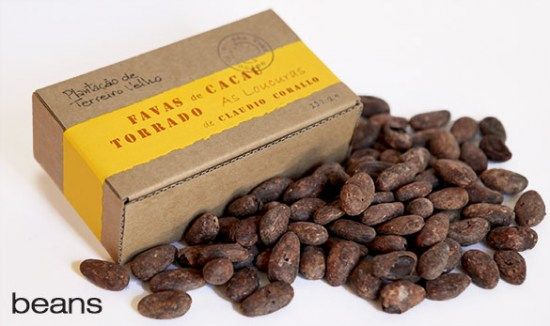
Credits: Claudio Corallo coffees and chocolate
On the other hand, Ubric 2 is made of chocolate with 70% cocoa and raisins distilled in a white muscatel, while Ubric 3 is a pink muscatel distilled product.
As it could not be otherwise, considering he is a self-respecting environmentalist, there are no excesses whatsoever, especially in the packaging: they are all made of thick cardboard, printed only with the Claudio Corallo logo on an adhesive.
Pandemic
In view of the Covid-19 and the logistical difficulties in Sao Tome and Principe, Claudio is setting up a small chocolate plant in Florence, to help export his products. “Since 2018, our exports have been severely damaged thanks to the deficiencies of the Sao Tome airport, which is considered to be unsafe, which caused the logistics to also become very complicated. To ship the goods to Europe or to the USA, we must ship them, first, to Mozambique, in Angola, from there to Lisbon and only from this point to the final destination. Shipping cost has quadrupled! It makes chocolate too expensive”, he concludes.

